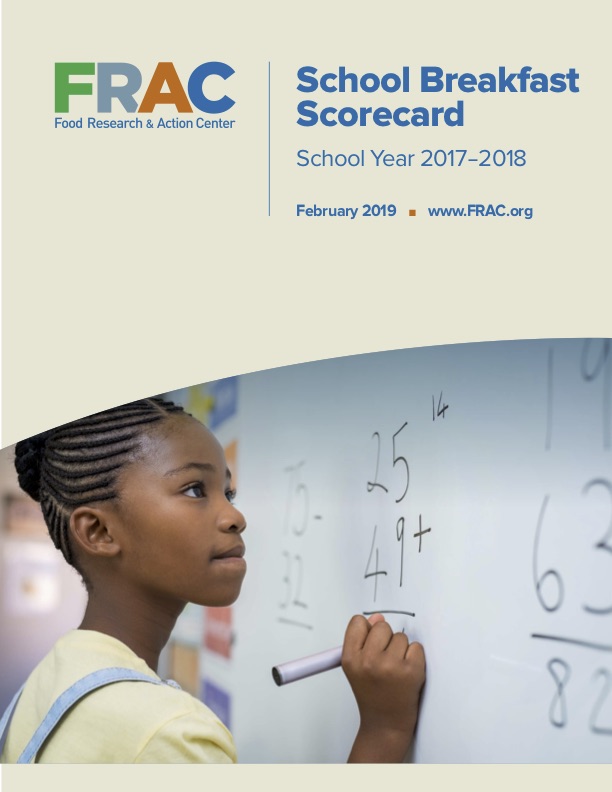State’s low participation in school breakfast means poorer outcomes for students, missed federal funding
 Despite a slight increase in participation, Nebraska still ranks near the bottom of the country in providing students in need with a nutritious breakfast at school according to the School Breakfast Scorecard, released annually by the Food Research and Action Center (FRAC).
Despite a slight increase in participation, Nebraska still ranks near the bottom of the country in providing students in need with a nutritious breakfast at school according to the School Breakfast Scorecard, released annually by the Food Research and Action Center (FRAC).
Each year, FRAC’s School Breakfast Scorecard analyzes each state’s participation in the free School Breakfast Program, which provides a nutritious and balanced morning meal to more than 12 million children nationwide. Research shows providing breakfast leads to substantial educational and health benefits for kids from families that may be struggling with food security.
According to the School Breakfast Scorecard (Tables 1 and 2):
- Nebraska ranks 47th out of 50 states and the District of Columbia in the percentage of students receiving free or reduced-price school breakfast who also participate in free or reduced-price lunch (44.1 percent).
- Nebraska ranks ahead of only Hawaii, Iowa, New Hampshire, and Utah in school breakfast participation.
- Nebraska has fallen from 46th to 49th in the rankings of 50 states and the District of Columbia for number of schools that participated in school breakfast.
- West Virginia continued to rank No. 1 in the U.S. with 83.7 percent of students receiving free or reduced-price school breakfast who also participate in free or reduced-price lunch.
View FRAC’s interactive school breakfast map
“Although we moved ahead one place in the rankings, Nebraska continues to rank near the bottom nationally in making sure our children are getting the breakfast they need to be healthy and learn,” said Eric Savaiano, Nebraska Appleseed economic justice program associate. “Food insecurity is a reality in every community in Nebraska. We can and must do a better job fighting hunger in our state. The school breakfast program is one of our best tools to make sure our children are getting a nutritious meal to start their days strong.”
Nebraska’s low participation in school breakfast means missed meals for hungry children and missed dollars for our state. Nebraska would qualify for an additional $9.3 million in federal funding if the state reached the national benchmark of serving 70 percent of students receiving free and reduced-price breakfast who it serves free and reduced-price lunch (Table 4).
Nebraska schools can be reimbursed to explore several options that have shown proven results fighting classroom hunger. The Community Eligibility Provision allows qualified schools to provide meals to all students at no cost to their families. Also, alternative breakfast models like grab-and-go breakfasts or offering breakfast to students in their classrooms have been shown to increase the number of students who get the meals they need to be succeed.
“Students who eat breakfast are much more likely to show up for school on time, score higher on tests, and get the vitamins and minerals they need to lead healthy lives,” Savaiano said. “With so much at stake for the future of our children and state, Nebraska officials, legislators, and school systems must begin taking advantage of the opportunities and funding that exist to ensure every student gets the nutrition they need for success.”
Contact: Eric Savaiano
Economic Justice & Health Care Access Program Associate
Office: (402) 438-8853
esavaiano@neappleseed.org

